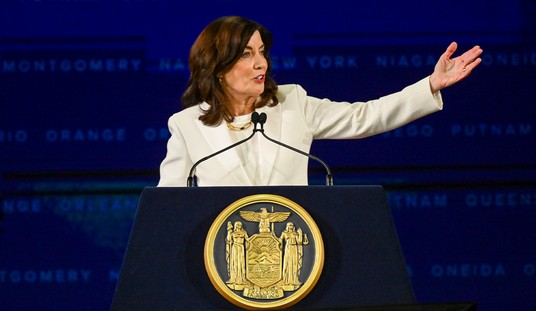We got another example today with Alec MacGillis' profile done over at The New Republic. The meat of his argument comes in a discussion with Rep. Blumenauer:
All of which is to say that Ryan is not some sort of high-minded intellectual, taking in the world’s problems with an independence of mind and openness to new information. He is an ideologue with a politician’s talent for sticking to party orthodoxy in the face of contrary evidence. “He has a real talent for staying on his talking points,” says Earl Blumenauer, an Oregon Democrat who serves on the Budget Committee. “Most people would be distracted when someone points out, ‘Gee, Paul, your budget takes all those purported savings and redistributes them [as tax cuts to the wealthy].’ He has the ability to just repeat the talking point. ... It’s a gift.”
The same charge has been leveled at Mitt Romney - that his tax simplification plan doesn't have enough specificity. Armed with a tax report from the Brookings-Urban Institutes' Tax Policy Center, President Obama and the Democrats have been charging that Romney's tax plan would result in a middle-class tax hike.
Ryan has long told journalists, however, that he prefers to respect the division of responsibilities in Congress. When the Path to Prosperity first came out, he said that he simply had a tax revenue target in mind, and that he didn't want to step on the toes of Rep. Dave Camp, chairman of the House Ways and Means Committee.
Recommended
This weekend, there was a report in the Hill that this is actually the proper legislative tack to take:
Congressional Republicans are fully backing Mitt Romney’s broad-brush approach to tax reform, illustrating the advantage that both sides see in being light on the details.“Let’s suppose that he had a plan with every dot and tittle,” Sen. Chuck Grassley (R-Iowa), a former chairman of the tax-writing Finance Committee, told The Hill. “What’s the practical aspect of it? A president proposes. We dispose.”
...
Republicans on the Hill say that Romney and Ryan should continue to pound the same themes, even as they are likely to take heat on the issue in the future. They note that tax reform is a complicated enough venture without getting locked in on the details.
One of the largest strategic lessons of the 1990s is that it's difficult to try to force every little detail in a proposal through Capitol Hill. The failed Clinton health care reform was an example of the executive branch basically asking for a rubber-stamp on a detailed and complex piece of legislation. The failure taught partisans everywhere that members of Congress don't like being cut out of conversations. Even the Obama Administration learned the lesson; during the fight over Obamacare, President Obama was keen not to support or shoot down many different policy options that were circulating in Congress, preferring to let the details get sorted out legislatively.
It's unquestionable that Mitt Romney and Paul Ryan have engaged in some amount of strategic vagueness in order to duck some tough questions about how they'll achieve what they're promising. But it's important to keep sight of the desire not to box in other members of Congress on policy questions that will need to be decided in committee.























Join the conversation as a VIP Member